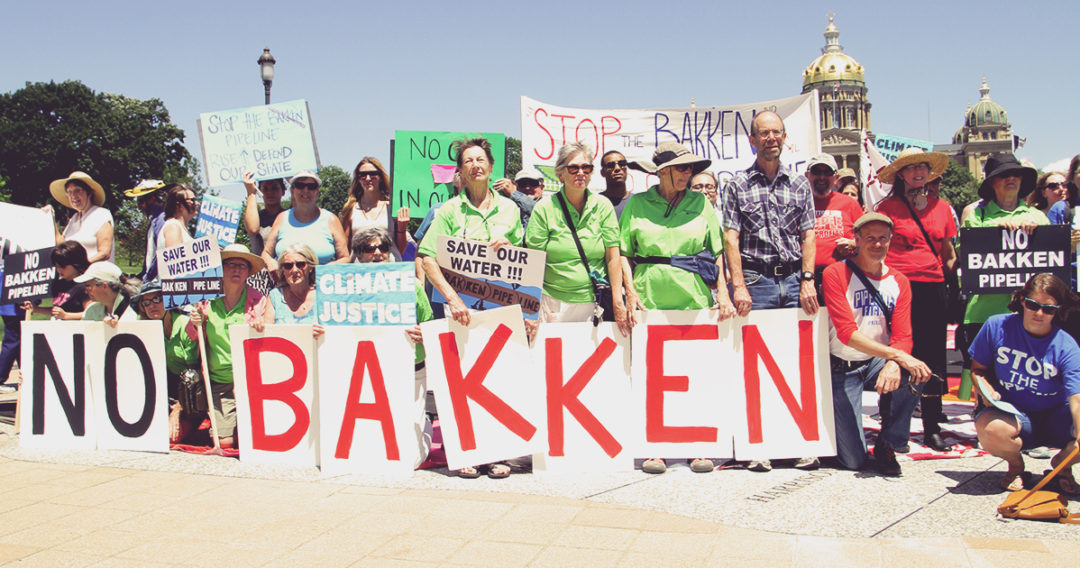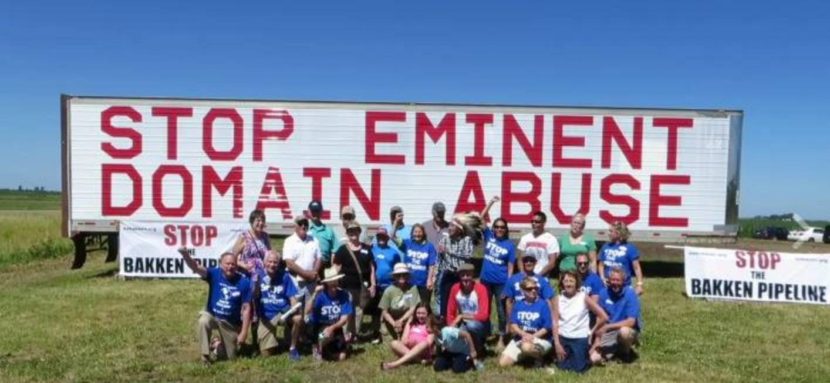Stop the Bakken Pipeline & the Abuse of Eminent Domain


American landowners face serious risks with eminent domain for private gain, beyond the obvious loss of property rights. If a permitting agency like FERC or the State Department rejects a pipeline, exactly like what happened with Keystone XL, the pipeline company still owns the landowners’ property it took through eminent domain. Pipeline companies whose permit was rejected by FERC or the State Dept. can still turn around and sell the easements to any company they wish, and the landowner has no say in the land sale process.
We see a clear connection between climate change and the abuse of eminent domain for private gain for pipelines. Agricultural communities (crop farming, fisherfolk, cattle producers) rely on clean water and soil for their livelihoods and America’s food supply. Climate change is a clear risk to these livelihoods. Pipelines put livelihoods at direct risk of spills and explosions. With the additional risk of droughts and extreme weather that come along with climate change, we simply can not continue to allow corporations to abuse eminent domain to build these risky pipelines.


While there have been various eminent domain cases that have been argued at the Supreme Court, it is the landmark “Kelo” case that unfairly broadened the use of eminent domain for private gain.
Kelo vs the City of New London was a 5-4 decision in 2005. This case solidified into law the ability of governments to take private land and hand it over to for-profit companies for energy projects or other purposes. In the Kelo case, homes were destroyed for the development of a strip mall that was never actually developed. In the wake of the Kelo decision, by 2006 states were passing new laws to try to protect property rights. However, some states including Nebraska instead actually passed industry-friendly regulation to broaden the use of eminent domain for pipelines and other private uses.
When citizens fight eminent domain and pipelines, the big corporations often tell landowners and elected officials there is nothing they can do to stop the pipeline, and that the state or county has no power over the pipeline because it is regulated at the federal level. This is NOT true.
States can influence various aspects of oil pipelines:
- Eminent domain process and terms (or enact an outright ban on “private gain” uses)
- Siting and routing of pipelines
- Easement abandonment of unused/out of service pipe
- Emergency and spill response planning
- Bonding for road use and other insurance issues
- Liability for spills
- Regulation of neighboring land uses
ACTION:
Sign the Bakken Pipeline Pledge of Resistance.
WATCH:
Bold Nebraska interviewed dozens of the farmers, ranchers and rural landowners who were bullied for years by pipeline company TransCanada to sell easements of their land for the Keystone XL pipeline. We share their experiences and lessons learned as a resource for Pipeline Fighters in Iowa and everywhere citizens are standing together in unlikely alliances to protect our land, water and climate.
